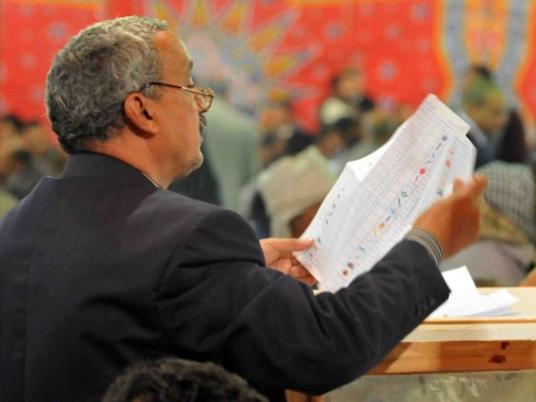
Legal experts differed over the possibility that the results of the first phase of the parliamentary elections could be appealed or annulled due to reported violations.
Gaber Nassar, professor of constitutional law at Cairo University, said violations occurred due to irregularities in organization and absence of real supervision by the high electoral committee, a neglect that left matters in the hands of judges in each ballot station.
In many cases, there are problems that judges cannot act against, while security was absent in many ballot stations. In some cases judges were locked in, and they had to call for the police, he added.
Most candidates did not abide by the rule to stop their campaigns 48 hours before the vote, while campaign expenses were not limited to a certain ceiling, Nassar said. He added that such violations could have been avoided by the high elections committee if it had assumed its proper role and not left it to the Ministry of Interior, as was the case during the Mubarak regime.
The violations in the first phase of elections were as prominent as they are in most democracies, said Councilor Noha al-Zeini, deputy chairman of the high administrative prosecution.
The violations do not render the elections void, Zeini said, citing reports by international and local rights organizations that lauded the conduct of elections despite minor violations.
Some ballot station supervisors could be fined due to violations, she added.
Some of the violations resulted from poor organization, particularly since these elections were the first involving both single-winner and list-based systems, she said, adding that these mistakes could be avoided in the future.
Abu al-Ela al-Nemr, law professor at Ain Shams University, said the violations that took place during the electoral process could be addressed in court but would not result in the elections being annulled.




